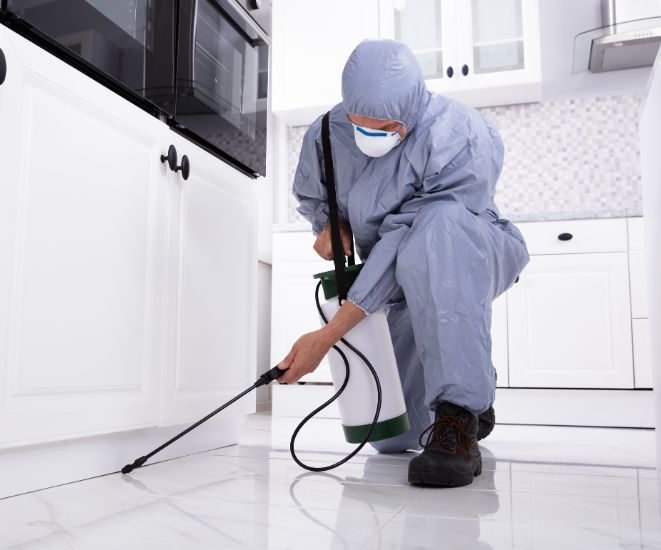7 Helpful Tips and Strategies
Finding a trusted pest control or exterminator company can be a challenging task when unwanted pests invade your home or business. Whether you are dealing with bugs, rodents or other pests, knowing what to look for in a company is very important. Read on for some helpful tips on how to choose the best pest control company.
Tips for Choosing a Pest Control or Exterminator Company
1. QualityPro Certification
Look for companies that have QualityPro certification. This certification shows that the company follows high industry standards and has passed special tests for their work. A certified company is more likely to use safe methods and products, helping you keep your home or office free of pests without causing harm to people, pets or the environment.
2. Check Online Reviews
Before hiring a company, take time to check online reviews. These reviews are written by previous customers who have used the service. Positive reviews can be a good sign that the company is reliable, while recurring complaints might warn you to choose another provider.
3. Verify Licensing
Always check to see that the company is licensed to operate in your area. A licensed pest control company has met the local government’s strict requirements and has been trained to handle chemicals and equipment properly. Hiring a licensed company protects you from unqualified work and possible damage to your property.
4. Ask About Integrated Pest Management
Integrated Pest Management (IPM) is an approach that uses safe and effective methods to control pests while reducing environmental harm. Ask if the company offers IPM services. IPM can include a mix of monitoring, preventive measures and treatments. A company that practices IPM typically works to solve the pest problem over the long term, rather than relying solely on quick fixes.
5. Research Certifications and Associations
It is a smart idea to research any other certifications and associations the company belongs to. Membership in professional groups shows that they are committed to staying up to date with the latest pest control technologies and safety measures. Certifications from respected organizations can also mean that the technicians are well trained and follow industry best practices.
6. Ask for Quotes and Pricing Upfront
Before any service begins, ask the company if they provide quotes and pricing information upfront. A reputable pest control service usually offers transparent pricing without hidden fees.
7. Inquire About Experience with Your Specific Pest
Different pests require different methods for control and elimination. Ask about the company’s experience with the specific pest you are having problems with. Companies that have handled similar cases are more likely to resolve your issue quickly and effectively.
Common Pests Handled by Exterminators
There are five main categories of pests that are handled by professional exterminators.
1. Vertebrates
Vertebrates include animals with a backbone such as rodents, pigeons and sometimes small mammals. These pests can cause structural damage, contaminate food and sometimes carry diseases. Pest control companies often use traps, exclusion methods or bait stations to safely remove or control these animals.
2. Arthropods
Arthropods are invertebrates that have exoskeletons, which include insects like cockroaches, ants and termites, as well as spiders. Termites, in particular, can cause severe damage to wooden structures. Professionals use a variety of methods, such as insecticides and baiting systems, to target arthropods and protect your property.
3. Nematodes
Nematodes are tiny worms that can harm plants and crops, but some species also affect soil health. In residential areas, nematodes may be less common, but in agricultural settings, their impact can be significant.
4. Weeds
Weeds might not be insects, but they are a type of pest that can take over gardens, lawns and agricultural fields. They compete with desired plants for nutrients, light and water. Pest management in this case usually involves mechanical removal, chemical herbicides or natural treatments that control their growth.
5. Pathogens
Pathogens such as bacteria, fungi and viruses are not pests in the traditional sense, but they can be spread by pests and cause diseases. For example, rodents and insects may carry pathogens that affect human health. Pest control companies sometimes work with public health officials to manage the spread of these harmful agents, often using a combination of sanitation, exclusion and chemical treatments.
When Should You Hire a Professional Exterminator?
You should consider hiring a pest control or exterminator service when you notice signs of an infestation that you cannot manage on your own. Frequent sightings of pests, unusual droppings, evidence of structural damage or reports of bites and allergic reactions can all indicate that the problem has become too severe or persistent for DIY methods.
Additionally, if over-the-counter treatments and home remedies have not resolved the issue or if you suspect that the infestation could spread or pose a health risk, it's best to bring in a professional. Experts not only remove the current pests but also identify and address underlying factors to help prevent future outbreaks.
Choosing the right pest control service is all about knowing what questions to ask and what issues to look for. With the detailed tips above, you can feel more confident when it comes to knowing how to choose the best pest control company.
